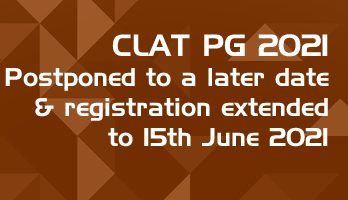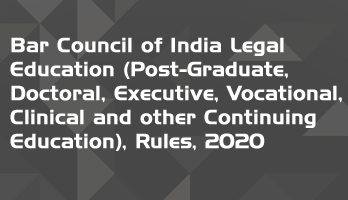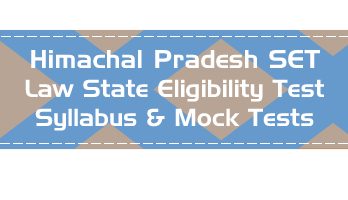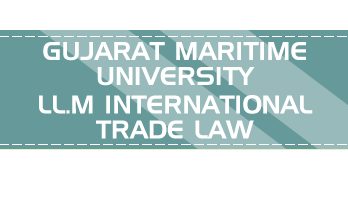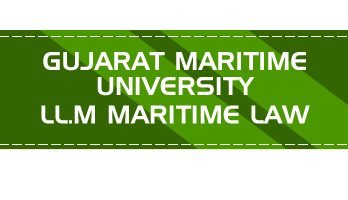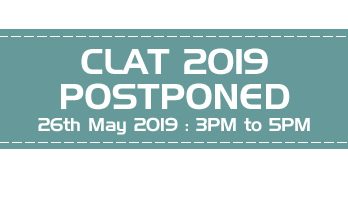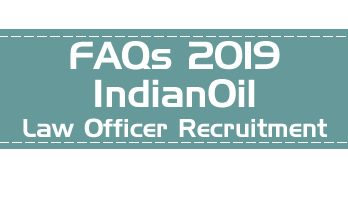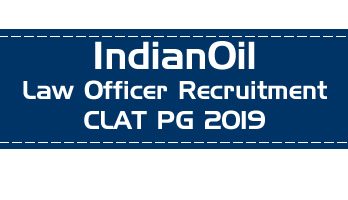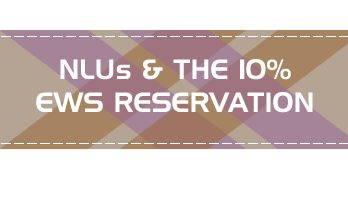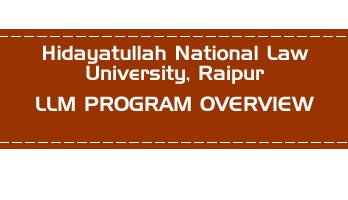Q : Can a NET-LS student call herself UGC NET “qualified” student, or does she have to qualify for the JRF first?
Ans :
You are NET qualified !
Let’s look at the difference between NET – Asst Professor qualified & NET – JRF & Asst. Professor qualified :
The only difference is Age.
The upper age limit for JRF is 30 years. (With relaxations for reserved categories) and there is no upper age limit for Asst. Prof.
Everyone takes the same exam and the common cut-off is 6% of all eligible candidates. I.e. 6% of all eligible candidates (who score the minimum required in both the papers) will be declared as NET qualified.
Candidates who are 30 years or less will be qualified as ‘JRF + Asst. Prof.’ and candidates who are 31 and above will get a ‘Asst. Prof’ qualified certificate.
Other than the age factor, there is no difference in the exam / cut-off / evaluation etc.
So, NET-Lectureship i.e NET-Asst Prof. qualified candidates can all themselves NET qualified.
Q : Are there any good Indian colleges which don’t require entrance exam and select on the basis of marks for bachelor’s?
Ans :
Simply, No.
This is a very generic answer, but consider the following conundrum.
In any college, there is a resource cap in terms of the maximum number of seats per session.
If the college is considered as ‘good’, given the population in India, there will be more applicants than the number of seats.
If there are more applicants than seats, there has to be some filtration mechanism to shortlist / reject applicants.
The entrance exam is essentially the mechanism to filter out applicants.
So, the best colleges in all fields will have an entrance exam – unless the course is a ‘low demand’ / niche program.
However, depending on the area of study, there should be decent tier-2 colleges that will have a lower demand and will be easier to get into.
Q : How should I start my UGC NET commerce exam’s preparation?
Ans :
This is a frequently asked question, so re-using my answer from another similar question . However, the details are relevant for most NET subjects.
Two ~ three months of focused & dedicated preparation is more than enough to crack the NET exam.
With a decent amount of effort and some smart preparation, it is possible to crack the NET in the first attempt – and a number of candidates do that every time.
The NET is not a difficult exam to start with. The challenge is that you have to make it to the top 6% to get qualified.
A number of students delve into extensive theory to prepare for the NET – which is not something I recommend. Because the theory is something you have already studied in your graduation & PG. Do you really want to dig up all the old text books and study again ?
Instead, focus on solving as many papers and mock tests as possible; which will help you focus on the crucial areas and understand your weaknesses.
Also, the approach is to know or guess the correct answers within the limited time available. So practice, practice and practice.
For example, Managerial Economics is a vast topic and so is Economics. However, when the entire exam is for 100 questions; across the entire set of Management subjects, most of the questions will be predictable.
The rest of the answer is adapted from one of my previous posts :
I always find it easier to focus on the preparation for any exam when I am running against a deadline. If I have too much time, I tend to slack off. So two ~ three months is the ideal time for focused prep.
This is the outline of the strategy I would recommend :
Extensive theory books are not required . . .
Since the UGC NET is a completely objective exam, studying extensive theory is not an ideal prep strategy.
The books covering the full syllabus are nothing but your graduation text books.
Selective & focused study is the best approach for the NET.
UGC NET Paper II, it is mostly a memory game. The entire syllabus of a subject is sought to be compressed and tested within 100 questions.
You just need to remember the right answer – even if you don’t know the detailed theory behind it.
For Paper 1, apart from memory based questions, you need to know the processes of how to calculate, select or guesstimate the right answers.
For both papers, it is all about practice, practice and more practice; since a most of the questions are repeated, adapted or derived from a standard pool of questions.
What I would suggest for both Paper 1 and 2 is :
[1] Solve at least 5 previous papers even before you start your prep.
[2] Review the papers you have attempted and you will identify your strengths and weaknesses. For example, in paper 1 you may be very good at data interpretation, but need to improve your reading comprehension etc.
[3] Watch good explanation videos of previous question papers which explain how to solve the different types of problems.
[4] Start your second round of practice and again attempt as many previous papers + mock tests as possible.
[5] Review each paper thoroughly before attempting the next paper
Within 15 ~ 20 days, you will see a significant improvement in your scores. Keep practicing till you consistently score above 85% and you are ready to crack the NET exam.
Q : Are there any institutes for the CLAT LLM in Hyderabad?
Ans :
You may need coaching for CLAT, but not the the CLAT LLM :
This is a very long answer, copy-pasted from some of my answer(s) to similar questions . . .
First of all, the CLAT PG LLM entrance exam is a multiple choice objective type exam based on the entire LLB syllabus. But the crucial topics are Jurisprudence & Constitutional law – which together account for 2/3rd of the exam (66%).
Extensive theory is not the best way to prepare for multiple choice based exams. The ideal approach would be to solve as many MCQs as possible, covering the entire syllabus, with focus on the critical areas and solve all the previous papers you can find.
Solve at least two mock tests every day and after you have finished, re-attempt the ones from the previous day till you can blindly click on the right answer without thinking too much.
After all, almost 85% of the questions are repeats / variants from previous years or derived from ‘important questions’ from other similar exams.
There was another question which asked . . . Would it be possible to crack CLAT PG by studying only for a month?
Yes. Absolutely possible. If the paper had ‘subjective’ part, I would have had my reservations. But the advantage the CLAT LLM paper is :
(1) It is completely an objective paper
(2) There are no ‘analytical’ / ‘quants’ / ‘reasoning’ based questions
(3) A bulk of the questions emphasize more on memory & recognition skills (e.g. Which article says this . . . Which case is for what . . . What Salmond / Austin / Hart or Holmes said etc.)
(4) A significant number of questions are repeated / variations / adapted from previous exams or from other similar exams.)
So, the answer to your question is ‘Yes’.
What’s the approach?
Complete 2 (or preferably 3 or more) mock tests every day. Review the results carefully and make a note of the questions you got wrong and memorize the correct answers.
Repeat the process every day till you circle back to the first set of mock tests and just keep repeating the cycle.
In around 10 – 15 days, you will have become familiar with a bulk of the ‘important’ questions; and you will know the answer by instinct and your scores will start going up.
Most of the LLM entrance questions don’t need any explanation or reasoning . For example, look at the first four questions from CLAT PG listed below.
Once you know & remember the correct answer, you can answer these questions & any variations thereof.
1. If any question arises whether a Bill is a Money Bill or not, the decision given by the shall be final:
(a) Finance Minister
(b) Speaker of the Lok Sabha
(c) Vice-President
(d) Prime Minister.
2. Part IX-B of the Constitution of India dealing with the ‘Co-operative Societies’ was inserted by:
(a) The Constitution (Ninety Fifth Amendment) Act, 2009
(b) The Constitution (Ninety Eighth Amendment) Act, 2012
(c) The Constitution (Ninety Third Amendment) Act, 2005
(d) The Constitution (Ninety Seventh Amendment) Act, 2011.
3. Article 280 of the Constitution of India deals with:
(a) Finance Commission
(b) Election Commission of India
(c) Union Public Service Commission
(d) Comptroller and Auditor-General.
4. Which provision of the Constitution of India deals with the representation of the Anglo-Indian Community in the House of the People?
(a) Article 331
(b) Article 332
(c) Article 333
(d) Article 330
Questions like these don’t need any explanation. You just need practice.
So, if the objective is to score high marks in the CLAT PG LLM, yes, one month of dedicated practice is good enough – but the more time you have, the better you can practice.
If you are appearing in the CLAT PG 2019, we have published the
Q : Which is the best coaching centre for LLM entrance coaching in South India?
Ans :
This answer is adapted from one of my previous answers to a similar question.
While there are plenty of Coaching Institutes offering programs for UG (LLB), but there are very few for LLM – PG.
Before you shortlist a coaching center near your location, consider the following.
You may not need coaching for the LLM entrance exam . . .
Coaching institutes are great; and they are very essential for exams where there is a subjective assessment and you have to deal with a lot of theory, which you may not be familiar with.
Coaching is also great for exams where there are analytical / mathematical / reasoning based questions – since a good coach should teach you how to approach them and solve them in the fastest possible way.
So, coaching may be a good idea for CLAT / DU LLB / AILET etc. But personally, I feel coaching is not required for CLAT-PG / DU LLM / AILET PG and other LLM entrance exams.
Why ?
LLM entrance exams are based on the LLB syllabus and you are already familiar with the subjects. You don’t need to be explained how the Constitution came into being or what different schools of Jurisprudence are etc.
What you do need is to know the answer to the questions.
First look at the typical syllabus . . .
“ The LL.M. Entrance Test Paper shall contain 100 Questions relating to: Constitutional Law of India, Law of Contracts, Sale of goods, Family Law, Criminal Law, Intellectual Property Rights, Cyber Law, Jurisprudence, Law of Torts, Consumer Protection Act, Public International Law, Company Law and Partnership.”
The syllabus therefore essentially covers all the important topics from the LLB course.
Also, there is no specific break-up of the marks from each area; so how do we know what should we focus on ?
Well,
- analyse previous years papers,
- analyse important questions from other similar exams,
and you can arrive at a fairly accurate picture of what to expect.
As I have been saying, the best way to prepare for any MCQ – objective questions based exam is to just keep practicing . . . practicing and practicing; till you can identify the correct answer for the question – even if you are not completely sure about why it is the correct answer.
Also, there are many questions which don’t need any ‘explanation’ or understanding, since they are fact based.
For example, if a question asks “Which article of the Indian constitution refers to ‘freedom of speech and expression’?”; you just need to know that it is Article 19. There is no explanation required.
Similarly, if the question is twisted around and asks “Article 19 of the constitution of India refers to which of the following?” ; you need to be able to identify the correct answer; there is no explanation!
A bulk of the questions in the LLM exam are in the above pattern… “Who said …… “, “The section ……… of the …….. act says what?” etc.
So, if you solve all the previous question papers + solve important questions from other exams AND keep solving them till you get most of the answers correct, you will do exceptionally well in the LLM entrance exams.
Same questions, Similar questions . . .
If you analyse the previous question papers, you will see that a bulk of the questions are repeated, derivations or similar to previous questions. So, practicing as many previous papers as possible is recommended.
Also, practice as many mock tests as possible, which have relevant questions.
For example, though the Constitution of India may have 448 articles, 95% of the questions in most exams refer to only around 50 ~ 60 articles, so the mock tests should have questions around these relevant articles, which makes your preparation more effective.
Q : How many days of preparation are needed to crack the NET?
Ans :
Re-using my answer from another similar question . . .
Two ~ three months of focused & dedicated preparation is more than enough to crack the NET exam.
With a decent amount of effort and some smart preparation, it is possible to crack the NET in the first attempt – and many candidates do that every time.
The NET is not a difficult exam to start with. The challenge is that you have to make it to the top 6% to get qualified.
A number of students delve into extensive theory to prepare for the NET – which is not something I recommend. Because the theory is something you have already studied in your graduation & PG. Do you really want to dig up all the old text books and study again ?
Instead, focus on solving as many papers and mock tests as possible; which will help you focus on the crucial areas and understand your weaknesses.
( Which is why we have 100 mock tests & all previous paper 1’s from Dec 2004 in our online prep pack. See link in signature.)
Also, the approach is to know or guess the correct answers within the limited time available. So practice, practice and practice.
For example, Economics is a vast topic; However, when the entire exam is for 100 questions; across the entire set of graduation subjects, most of the questions will be predictable.
I always find it easier to focus on the preparation for any exam when I am running against a deadline. If I have too much time, I tend to slack off. So two ~ three months is the ideal time for focused prep.
This is the outline of the strategy I would recommend :
Extensive theory books are not required . . .
Since the UGC NET is a completely objective exam, studying extensive theory is not an ideal prep strategy.
A few years ago, when Paper III was still a subjective / essay type exam, extensive study of theory was essential. However, with the entire NET exam becoming an objective exam, the prep approach also has to evolve.
The books covering the full syllabus are nothing but your graduation text books. Which you have already studied. Maybe not at an expert level, but you are aware of the outline of the subject; which is the base to start with.
Selective & focused study is the best approach for the NET.
UGC NET Paper II, it is mostly a memory game. The entire syllabus of a subject is sought to be compressed and tested within 100 questions.
You just need to remember the right answer – even if you don’t know the detailed theory behind it.
For Paper 1, apart from memory based questions, you need to know the processes of how to calculate, select or guesstimate the right answers.
For both papers, it is all about practice, practice and more practice; since a most of the questions are repeated, adapted or derived from a standard pool of questions.
What I would suggest for both Paper 1 and 2 is :
[1] Solve at least 5 previous papers even before you start your prep.
( Check out our online prep pack with 100 mock tests & all previous paper 1’s from Dec 2004. Link in the signature )
[2] Review the papers you have attempted and you will identify your strengths and weaknesses. For example, in paper 1 you may be very good at data interpretation, but need to improve your reading comprehension etc.
[3] Watch good explanation videos of previous question papers which explain how to solve the different types of problems.
[4] Start your second round of practice and again attempt as many previous papers + mock tests as possible.
[5] Review each paper thoroughly before attempting the next paper
Within 15 ~ 20 days, you will see a significant improvement in your scores. Keep practicing till you consistently score above 85% and you are ready to crack the NET exam.
Q : How can I prepare for the NET without joining an academy?
Ans :
IMHO, you may not need in-person coaching for the UGC NET exam . . .
I am adapting this answer from some of my previous answers . . . Please bear with this long essay 🙂
On a broad level, you can classify exams into ‘memory biased’ and ‘knowledge biased’. This classification mostly depends on the subject of the Exam.
Mathematics is an example of a ‘Knowledge Biased’ exam.
If you take Algebra – you need to know how to solve an equation; just memorizing an answer or set of answers will not help; Practicing 100s of MCQs, without knowing the correct method to solve them, will not be of much help.
You need to have the fundamental knowledge on the subject, else the going gets difficult. So preparing for the exam requires going back to the basics.
However, take most of the UGC NET subjects – such as Law / Management / Commerce (Subjects which I am personally very familiar with.) They are all Memory biased.
For example, if a question from Constitutional Law asks which Article deals with ‘Equality before law’ – You just need to know it is ‘14’. There is no elaborate explanation required for it.
After you have answered the above question a couple of times, you will automatically remember it wherever you see the same / similar question.
The trick with memory biased subjects is to solve as many MCQs as possible. After each attempt review where you went wrong and remember the correct answer; and keep solving them till you can blindly mark the correct answer.
Considering that the syllabus for the NET exam covers the entire LLB syllabus; which is sought to be tested within 100 questions – there will be a certain predictable pattern in the way most of the questions are set.
Before you start your prep, just read through the past five years question papers. You will notice that a bulk of the questions are repeats / variants / derivatives of previously asked questions.
So find lots of previous question papers and mock tests and keep practicing!
If an online coaching offers all the previous question papers & plenty of mock tests, it can be more effective than a classroom coaching – especially if there is no specific need to study elaborate theory.
Q : Which coaching in Delhi is the best for Law NET?
Ans :
IMHO, you may not need in-person coaching for the UGC NET Law exam . . .
I am adapting this answer from some of my previous answers . . . Please bear with this long answer 🙂
On a broad level, you can classify exams into ‘memory biased’ and ‘knowledge biased’. This classification mostly depends on the subject of the Exam.
Mathematics is an example of a ‘Knowledge Biased’ exam.
If you take Algebra – you need to know how to solve an equation; just memorizing an answer or set of answers will not help; Practicing 100s of MCQs, without knowing the correct method to solve them, will not be of much help.
You need to have the fundamental knowledge on the subject, else the going gets difficult. So preparing for the exam requires going back to the basics.
However, take most of the UGC NET subjects – such as Law / Management / Commerce (Subjects which I am personally very familiar with.) They are all Memory biased.
For example, if a question from Constitutional Law asks which Article deals with ‘Equality before law’ – You just need to know it is ‘14’. There is no elaborate explanation required for it.
After you have answered the above question a couple of times, you will automatically remember it wherever you see the same / similar question.
The trick with memory biased subjects is to solve as many MCQs as possible. After each attempt review where you went wrong and remember the correct answer; and keep solving them till you can blindly mark the correct answer.
Considering that the syllabus for the NET exam covers the entire LLB syllabus; which is sought to be tested within 100 questions – there will be a certain pattern in the way questions are set.
Before you start your prep, just read through the past five years question papers. You will notice that a bulk of the questions are repeats / variants / derivatives of previously asked questions.
So find lots of previous question papers and mock tests and keep practicing!
If an online coaching offers all the previous question papers & plenty of mock tests, it can be more effective than a classroom coaching – especially if there is no specific need to study elaborate theory.
Note : For exams which include quants / reasoning / analytical questions; I would strongly suggest going to a good classroom coaching to start with. Because a good teacher should be able to teach you the fundamentals and the short-cuts.
Once you are thorough with the fundamentals, online coaching is good for plenty of practice.
Thanks for the A2A.
Q : Which coaching in Delhi is the best for Law NET?
Ans :
IMHO, you may not need in-person coaching for the UGC NET Law exam . . .
I am adapting this answer from one of my previous answers . . . Please bear with this long answer 🙂
On a broad level, you can classify exams into ‘memory biased’ and ‘knowledge biased’. This classification mostly depends on the subject of the Exam.
Mathematics is an example of a ‘Knowledge Biased’ exam.
If you take Algebra – you need to know how to solve an equation; just memorizing an answer or set of answers will not help; Practicing 100s of MCQs, without knowing the correct method to solve them, will not be of much help.
You need to have the fundamental knowledge on the subject, else the going gets difficult. So preparing for the exam requires going back to the basics.
However, take most of the UGC NET subjects – such as Law / Management / Commerce (Subjects which I am personally very familiar with.) They are all Memory biased.
For example, if a question from Constitutional Law asks which Article deals with ‘Equality before law’ – You just need to know it is ‘14’. There is no elaborate explanation required for it.
After you have answered the above question a couple of times, you will automatically remember it wherever you see the same / similar question.
The trick with memory biased subjects is to solve as many MCQs as possible. After each attempt review where you went wrong and remember the correct answer; and keep solving them till you can blindly mark the correct answer.
Before you start your prep, just read through the past five years question papers. You will notice that a bulk of the questions are repeats / variants / derivatives of previously asked questions.
So find lots of previous question papers and mock tests and keep practicing!
If an online coaching offers all the previous question papers & plenty of mock tests, it can be more effective than a classroom coaching – especially if there is no specific need to study elaborate theory.
Note : For exams which include quants / reasoning / analytical questions; I would strongly suggest going to a good classroom coaching to start with. Because a good teacher should be able to teach you the fundamentals and the short-cuts.
Once you are thorough with the fundamentals, online coaching is good for plenty of practice.
Thanks for the A2A.
Q : May I practice as an advocate on the submission day of the required papers to the WB Bar Council?
Ans :
As soon as you get your WB Bar Council enrollment / registration number.
Reusing one of my previous answers.
To practice as an independent lawyer after completing LLB, a student has to register with the respective state Bar Council and pass the AIBE within two years.
There is a ‘grace period’ of two years from the date of enrollment with the Bar Council, during which a LLB graduate can practice as a Advocate (i.e. represent clients in a Court of law)
If the student is unable to clear the AIBE, he/she has to stop practicing as a lawyer (at the end of 2 years from State Bar council enrollment date) and can recommence practice only after clearing the AIBE.
However, there is no restriction on a LLB graduate for pursuing higher education (LLM / MBA etc.) or taking up employment on the basis of the LLB or even starting any other business.
In simple steps, if you wish to practice as a Advocate / Lawyer in India :
(1) Complete LLB
(2) Enroll with state Bar council
(3) Start practice as an Advocate
(4) Clear the All India Bar Exam – AIBE within two years of enrollment
(5) If unable to clear – stop practice as a Advocate – continue to attempt AIBE and clear it.
(6) Resume practice as a lawyer.
If you don’t intend to practice and you are involved in any other business or in full time employment, you can skip the AIBE.
But I strongly recommend all students to clear the AIBE at the earliest possible, since it is mandatory whenever you wish to practice; and it is simpler to clear the exam when you are still fresh with your LLB subjects.
Note: At this time, there is no restriction in terms of number of attempts or any age limit for taking up the AIBE.
Thanks for the A2A.
Q : What is the duration of an LLB course after a degree?
Ans :
3 years . . .
Re-using one of my answers to a similar question.
The LLB degree in India can be considered a ‘Higher Bachelor’s degree; i.e. you have to be a graduate before taking up the LLB course.
After graduation (in any stream), with a minimum of 45% marks, you can take up a 3 year LLB in a regular UGC – BCI recognized college.
If you are keen on completing your LLB in a Tier 1 / Tier 2 college, you can even take up a 5 year LLB through various entrance exams like the CLAT / AILET / HPNLET / DU LLB etc. (Though you will be spending two additional years, a Tier-1 college will help you pursue a corporate career.)
As of today (14th Sep ), there is no upper age limit for taking up LLB.
There are no distance / part-time LLB courses that are recognized by the BCI; so if you take up such courses, you will not be eligible to practice.
Q : Which subject should I opt for to appear for the UGC NET, being an MBA in HR and marketing?
Ans :
Reusing my answer from a similar question . . .
Follow your purpose or follow the money . . .
Typically, you are expected to take up the NET in ‘Management’; which is the subject of your Masters’ Degree. However, if you have checked the eligibility criteria for the NET exam and if you are eligible for two or more subjects, you can either :
- Follow the intent or purpose behind taking up the exam – i.e. you might be interested in pursuing PhD or teaching in a specific area which interests you. Demand-supply calculation is not applicable here.Or
- Follow the money – where you do a quick analysis on which stream has more jobs, higher paying jobs etc. Use a demand-supply mapping approach.
Do a little bit of Google research for Asst. Professor openings, which will give you some overall numbers on the demand.
As far as supply is concerned, look at the NET exam qualification numbers for the recent years. I am looking at the Nov numbers :
Subject\t- Total – Asst Prof only – JRF and Asst Prof – Appeared
(008) Commerce\t- 5425\t- 5005 – 420 – 90417
(017) Management – 1711 – 1613 – 98 – 28517
As you can see, there are normally more students who clear NET in commerce than in Management. Do a quick correlation and choose a subject which has the higher & favorable demand-supply ratio.
In most cases, the issue is not with passing the NET. The issue would be to actually capitalize on the qualification – in terms of the NET adding value to your profile; for which it has to be relevant & connect with your prior experience and education.
Q : Which feature of Windows 10 takes you directly to the desktop?
Ans :
Bottom – Right – Corner of the screen. (As long as the task bar is enabled)
- Move your mouse cursor to the bottom right corner of the screen. (You will not see the cursor at all since it will be outside the screen.) (This is the are next to time / date / notifications display on the task bar tray.)
- Click
- You will go to the desktop irrespective of how many windows are open.
I use this feature often, when I have a number of windows open and I need to open some file from the desktop.
Q : How do I prepare for the NTA NET for commerce?
Ans :
This is a frequently asked question, so re-using my answer from another similar question . However, the details are relevant for most NET subjects.
Two ~ three months of focused & dedicated preparation is more than enough to crack the NET exam.
With a decent amount of effort and some smart preparation, it is possible to crack the NET in the first attempt – and a number of candidates do that every time.
The NET is not a difficult exam to start with. The challenge is that you have to make it to the top 6% to get qualified.
A number of students delve into extensive theory to prepare for the NET – which is not something I recommend. Because the theory is something you have already studied in your graduation & PG. Do you really want to dig up all the old text books and study again ?
Instead, focus on solving as many papers and mock tests as possible; which will help you focus on the crucial areas and understand your weaknesses.
Also, the approach is to know or guess the correct answers within the limited time available. So practice, practice and practice.
For example, Managerial Economics is a vast topic and so is Economics. However, when the entire exam is for 100 questions; across the entire set of Management subjects, most of the questions will be predictable.
The rest of the answer is adapted from one of my previous posts :
I always find it easier to focus on the preparation for any exam when I am running against a deadline. If I have too much time, I tend to slack off. So two ~ three months is the ideal time for focused prep.
This is the outline of the strategy I would recommend :
Extensive theory books are not required . . .
Since the UGC NET is a completely objective exam, studying extensive theory is not an ideal prep strategy.
The books covering the full syllabus are nothing but your graduation text books.
Selective & focused study is the best approach for the NET.
UGC NET Paper II, it is mostly a memory game. The entire syllabus of a subject is sought to be compressed and tested within 100 questions.
You just need to remember the right answer – even if you don’t know the detailed theory behind it.
For Paper 1, apart from memory based questions, you need to know the processes of how to calculate, select or guesstimate the right answers.
For both papers, it is all about practice, practice and more practice; since a most of the questions are repeated, adapted or derived from a standard pool of questions.
What I would suggest for both Paper 1 and 2 is :
[1] Solve at least 5 previous papers even before you start your prep.
[2] Review the papers you have attempted and you will identify your strengths and weaknesses. For example, in paper 1 you may be very good at data interpretation, but need to improve your reading comprehension etc.
[3] Watch good explanation videos of previous question papers which explain how to solve the different types of problems.
[4] Start your second round of practice and again attempt as many previous papers + mock tests as possible.
[5] Review each paper thoroughly before attempting the next paper
Within 15 ~ 20 days, you will see a significant improvement in your scores. Keep practicing till you consistently score above 85% and you are ready to crack the NET exam.
Q : How do I start preparing for the UGC NET? I am currently doing an M.Com (1st year). I am very confused with what to do, how and from where to start regarding the NET exam. I need a proper and correct guidance step by step from the beginning.
Ans :
This is a fairly long answer; adapted from some of my previous posts. But it answers the gist of your question.
What does the latest iteration of UGC NTA NET look like ?
Exam Pattern
The older pattern (2017) had 3 papers – Paper I (General), Papers II & III (Subject).
The new pattern since July has only two Papers – Paper I (General) and Paper II (Subject).
I.e. the old Papers II & III were combined into the new Paper II.
Number of questions
The overall number of questions has dropped. I.e. The old Paper II had 50 questions and Paper III had 75 questions. Now, the new combined Paper II has 100 questions.
So, there is a reduction of 25 questions.
Time per question
The old Paper 1 had 75 minutes for 50 questions – 1.5 mins per question. The new Paper 1 has 60 minutes for 50 questions – 1.2 mins per question.
The old Papers II (75 mins) & III (150 mins) had a total of 225 minutes for 125 questions – 1.8 mins per question. The new Paper II has 120 mins for 100 questions – 1.2 minutes per question.
So, the new Papers 1 and 2 have 1.2 minutes per question – i.e. lesser time per question.
Mode of exam
While the CBSE exam was Hard-copy paper based, the new NTA exams will be Computer Based Tests (CBT). So, I would strongly recommend practicing online to get used to navigating, reading and answering questions on a screen.
What about the syllabus ?
The syllabus has not been changed. The old Papers II & III syllabus are now combined into the new Paper II; and there are no electives. The entire syllabus is now mandatory and covered in the 100 questions of Paper II.
Two ~ three months of focused & dedicated preparation is more than enough to crack the NET exam.
With a decent amount of effort and some smart preparation, it is possible to crack the NET in the first attempt – and a number of candidates do that every time.
The NET is not a difficult exam to start with. The challenge is that you have to make it to the top 6% to get qualified.
A number of students delve into extensive theory to prepare for the NET – which is not something I recommend. Because the theory is something you have already studied in your graduation & PG. Do you really want to dig up all the old text books and study again ?
Instead, focus on solving as many papers and mock tests as possible; which will help you focus on the crucial areas and understand your weaknesses.
( Which is why we have 100 mock tests & all previous paper 1’s from Dec 2004 in our online prep pack. Link in signature)
Also, the approach is to know or guess the correct answers within the limited time available. So practice, practice and practice.
For example, Management is a vast topic; However, when the entire exam is for 100 questions; across the entire set of Management subjects, most of the questions will become predictable.
Recommended exam prep strategy :
I always find it easier to focus on the preparation for any exam when I am running against a deadline. If I have too much time, I tend to slack off. So two ~ three months is the ideal time for focused prep.
This is the outline of the strategy I would recommend :
Extensive theory books are not required . . .
Since the UGC NET is a completely objective exam, studying extensive theory is not an ideal prep strategy.
The books covering the full syllabus are nothing but your graduation text books.
Selective & focused study is the best approach for the NET.
UGC NET Paper II, it is mostly a memory game. The entire syllabus of a subject is sought to be compressed and tested within 100 questions.
You just need to remember the right answer – even if you don’t know the detailed theory behind it.
For Paper 1, apart from memory based questions, you need to know the processes of how to calculate, select or guesstimate the right answers.
For both papers, it is all about practice, practice and more practice; since a most of the questions are repeated, adapted or derived from a standard pool of questions.
What I would suggest for both Paper 1 and 2 is :
[1] Solve at least 5 previous papers even before you start your prep.
( Check out our online prep pack with 100 mock tests & all previous paper 1’s from Dec 2004. Link in the signature )
[2] Review the papers you have attempted and you will identify your strengths and weaknesses. For example, in paper 1 you may be very good at data interpretation, but need to improve your reading comprehension etc.
[3] Watch good explanation videos of previous question papers which explain how to solve the different types of problems.
[4] Start your second round of practice and again attempt as many previous papers + mock tests as possible.
[5] Review each paper thoroughly before attempting the next paper
Within 15 ~ 20 days, you will see a significant improvement in your scores. Keep practicing till you consistently score above 85% and you are ready to crack the NET exam.
Q : Which is a better option to consider while writing NET exam: Commerce or Management?
Ans :
Reusing my answer from a similar question . . .
Follow your purpose or follow the money . . .
I am assuming that you have checked the eligibility criteria for the NET exam and if you are eligible for two or more subjects, you can either :
- Follow the intent or purpose behind taking up the exam – i.e. you might be interested in pursuing PhD or teaching in a specific area which interests you. Demand-supply calculation is not applicable here.Or
- Follow the money – where you do a quick analysis on which stream has more jobs, higher paying jobs etc. Use a demand-supply mapping approach.
Do a little bit of Google research for Asst. Professor openings, which will give you some overall numbers on the demand.
As far as supply is concerned, look at the NET exam qualification numbers for the recent years. I am looking at the Nov numbers :
Subject\t- Total – Asst Prof only – JRF and Asst Prof – Appeared
(008) Commerce\t- 5425\t- 5005 – 420 – 90417
(017) Management – 1711 – 1613 – 98 – 28517
As you can see, there are normally more students who clear NET in commerce than in Management. Do a quick correlation and choose a subject which has the highest demand.
Q : If I bought every laundromat within a 50 block radius in Manhattan and raised prices, will I risk flouting an anti-trust law? Do anti-trust watchdogs care about these under-the-radar businesses?
Ans :
IMHO . . .
If you bought every laundromat in and around Manhattan; and raised the prices, it will mean that your profit margins have increased significantly.
Now, Laundromats are not businesses with high entry barriers – in terms of technology / investment / manpower etc. they are quite standardized.
Within a few days of your buying all the laundromats and raising prices, a number of smart entrepreneurs will figure out the profitability aspect and also that there is enough leeway to undercut the market leader; i.e. you. So, there will be cheaper laundromats that will pop up all over.
And you cant afford to keep buying em all… as they will keep on popping up like mushrooms.
So when does an Anti-trust regulator show up ?
Typically, anti-trust intervention would be required in an industry or area which has high natural entry barriers – either technological / financial / logistical etc. OR the entry barriers are artificial, such as cartels, red-tape etc.
In a perfectly competitive and lightly regulated area (like laundromats), the market will take care of itself.
For example, companies like Google & Microsoft attract anti-trust attention because of the fact that they have build up a technological barrier which is quite difficult to surmount – without having very deep pockets.
Q : How do I prepare for the NET exam in management, especially since the pattern has changed and there are no electives mentioned in question paper but it remains intact in the syllabus?
Ans :
The overall syllabus for the UGC NET has not changed.
So, what has changed ?
Exam Pattern
The older pattern (2017) had 3 papers – Paper I (General), Papers II & III (Subject).
The new pattern since July has only two Papers – Paper I (General) and Paper II (Subject).
I.e. the old Papers II & III were combined into the new Paper II.
Number of questions
The overall number of questions has dropped. I.e. The old Paper II had 50 questions and Paper III had 75 questions. Now, the new combined Paper II has 100 questions.
So, there is a reduction of 25 questions.
Time per question
The old Paper 1 had 75 minutes for 50 questions – 1.5 mins per question. The new Paper 1 has 60 minutes for 50 questions – 1.2 mins per question.
The old Papers II (75 mins) & III (150 mins) had a total of 225 minutes for 125 questions – 1.8 mins per question. The new Paper II has 120 mins for 100 questions – 1.2 minutes per question.
So, the new Papers 1 and 2 have 1.2 minutes per question – i.e. lesser time per question.
Mode of exam
While the CBSE exam was Hard-copy paper based, the new NTA exams will be Computer Based Tests (CBT). So, I would strongly recommend practicing online to get used to navigating, reading and answering questions on a screen.
What about the syllabus ?
The syllabus has not been changed. The old Papers II & III syllabus are now combined into the new Paper II; and there are no electives. The entire syllabus is now mandatory and covered in the 100 questions of Paper II.
The rest of the answer is adapted from one of my previous posts.
Two ~ three months of focused & dedicated preparation is more than enough to crack the NET exam.
With a decent amount of effort and some smart preparation, it is possible to crack the NET in the first attempt – and a number of candidates do that every time.
The NET is not a difficult exam to start with. The challenge is that you have to make it to the top 6% to get qualified.
A number of students delve into extensive theory to prepare for the NET – which is not something I recommend. Because the theory is something you have already studied in your graduation & PG. Do you really want to dig up all the old text books and study again ?
Instead, focus on solving as many papers and mock tests as possible; which will help you focus on the crucial areas and understand your weaknesses.
( Which is why we have 100 mock tests & all previous paper 1’s from Dec 2004 in our online prep pack. Link in signature)
Also, the approach is to know or guess the correct answers within the limited time available. So practice, practice and practice.
For example, Management is a vast topic; However, when the entire exam is for 100 questions; across the entire set of Management subjects, most of the questions will become predictable.
Recommended exam prep strategy :
I always find it easier to focus on the preparation for any exam when I am running against a deadline. If I have too much time, I tend to slack off. So two ~ three months is the ideal time for focused prep.
This is the outline of the strategy I would recommend :
Extensive theory books are not required . . .
Since the UGC NET is a completely objective exam, studying extensive theory is not an ideal prep strategy.
The books covering the full syllabus are nothing but your graduation text books.
Selective & focused study is the best approach for the NET.
UGC NET Paper II, it is mostly a memory game. The entire syllabus of a subject is sought to be compressed and tested within 100 questions.
You just need to remember the right answer – even if you don’t know the detailed theory behind it.
For Paper 1, apart from memory based questions, you need to know the processes of how to calculate, select or guesstimate the right answers.
For both papers, it is all about practice, practice and more practice; since a most of the questions are repeated, adapted or derived from a standard pool of questions.
What I would suggest for both Paper 1 and 2 is :
[1] Solve at least 5 previous papers even before you start your prep.
( Check out our online prep pack with 100 mock tests & all previous paper 1’s from Dec 2004. Link in the signature )
[2] Review the papers you have attempted and you will identify your strengths and weaknesses. For example, in paper 1 you may be very good at data interpretation, but need to improve your reading comprehension etc.
[3] Watch good explanation videos of previous question papers which explain how to solve the different types of problems.
[4] Start your second round of practice and again attempt as many previous papers + mock tests as possible.
[5] Review each paper thoroughly before attempting the next paper
Within 15 ~ 20 days, you will see a significant improvement in your scores. Keep practicing till you consistently score above 85% and you are ready to crack the NET exam.
Q : Do we need 60% marks in every subject to apply for NET?
Ans :
The Official Eligibility rules state :
“(i) Candidates who have secured at least 55% marks (without rounding off) in Master’s Degree or equivalent examination from universities/institutions recognized by UGC in Humanities (including languages) and Social Science, Computer Science and Applications, Electronic Science etc. (list of subjects at Post Graduation level attached as Annexure-IV) are eligible for this Test.
The Other Backward Classes (OBC) belonging to non-creamy layer/Scheduled Caste (SC)/Scheduled Tribe (ST)/persons with disability (PwD) category candidates who have secured at least 50% marks (without rounding off) in Master’s degree or equivalent examination are eligible for this Test.”
So the 55% is in aggregate and not necessarily in every subject.


